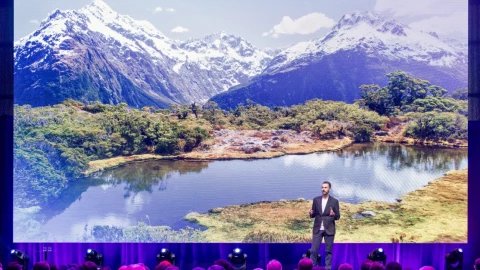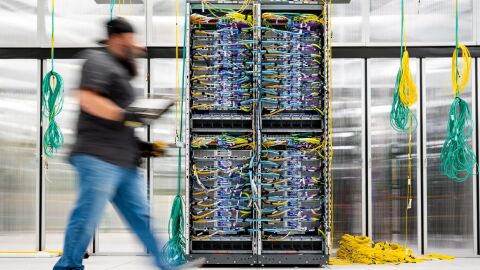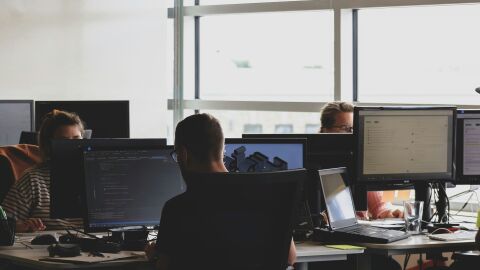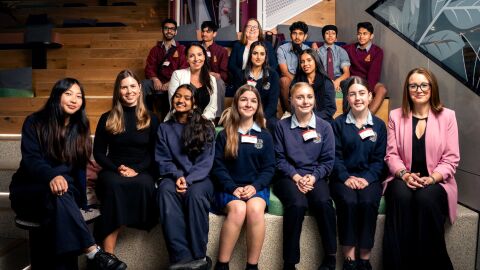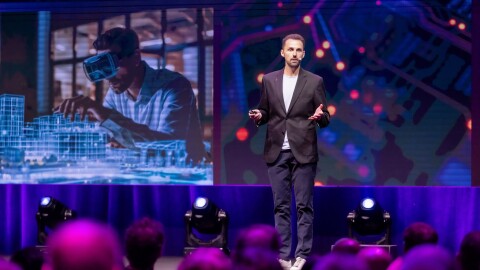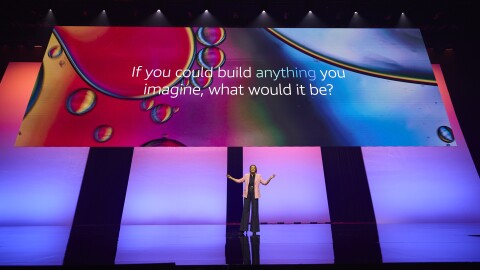Dr Carolyn Hogg has never been one to stay in her lane. The senior research manager for the Australasian Wildlife Genomics Group at the University of Sydney leads breakthrough scientific work in endangered species conservation and is—by her own admission—a “Type A personality who just wants to get on with it.” Get on with it she does. With Sydney under strict COVID lockdown, and with a set of koala biopsy samples stuck in Queensland, Hogg contacted a friend in the northeast state to ask an unusual favour. “I can't get to Queensland,” she said. “But I have a colleague there who’s a chemist. I gave him and one of his PHD students, who is also a chemist, a lesson on how to subsample biopsies over Zoom. “Neither of them have done any genetics in their entire lives, but they drove to the Australia Zoo Wildlife Hospital where the samples were being held to subsample them for me. Then they sent everything to my house so I could drop the material off at our lab. This is scientific collaboration on a whole new level.”
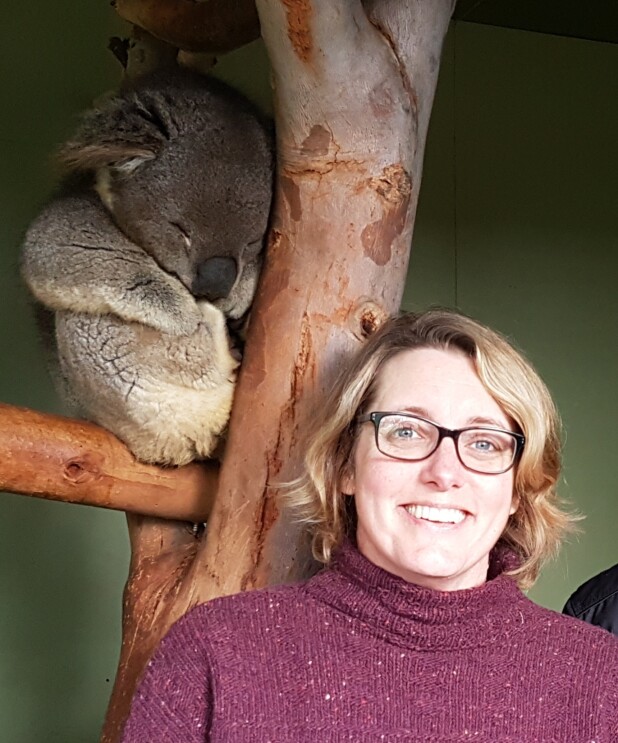
Collaboration comes naturally to Hogg, who has been working in conservation for 25 years and is pushing for more multidisciplinary initiatives to tackle the increasingly complex problems faced by wildlife in Australia and beyond: from climate change, to human destruction of habitat, and disease. Hogg needs the koala DNA samples because she is part of a concerted effort to map the genomes of 450 koalas from across the entire species range, and make the data available to researchers anywhere in the world through the Amazon Web Services (AWS) Open Data Sponsorship Program. Hogg and team released the genetic data through the program—which covers the cost of storage for datasets of high value to the scientific community and makes it available to be accessed and analysed in the cloud— with the hope of accelerating the research and development of solutions to protect the iconic, but increasingly threatened marsupial.
“Genome sequencing is an incredibly powerful tool for decision making,” said Hogg. “It provides us with so much insight into an animal, from its immune system, to its diet to its population diversity.” “We know that the more genetic diversity a species has within itself, the greater its adaptive potential to deal with whatever might be around the corner. We want to find ways to give endangered species like the koala as much genetic variation as possible so they can naturally adapt to the coming challenges.
“One example is moving koalas with certain genetic characteristics from one location to another. This comes with other issues, mainly because koalas are picky eaters, and some are pickier than others, but it is possible.
“And for researchers who are working on a vaccine for chlamydia—a bacterial infection that is a leading killer of koalas—this kind of genetic information could help to inform vaccine management programs by identifying which koala populations are more susceptible to the disease than others.”
The project, which has backing from both the Australian federal government, and the New South Wales government as part of its goal to double koala numbers by 2050, builds on previous work to sequence the koala genome, which was published in 2018.
This genetic blueprint, or ‘reference genome’, was produced from the DNA of one individual koala. Hogg and her fellow scientists are currently ‘re-sequencing’—sequencing the genomes of a wider group of animals that represent all the different types of koala found within the species. “Koalas from Queensland tend to be a little bit smaller and browner in colour, while koalas in Victoria tend to be bigger, grey, and fluffier,” said Hogg. “The level of variation had led many scientists to believe there might be two separate species of koala, until the koala reference genome was sequenced and proved this wrong. “Generating this new, broader genome dataset let us start to ask questions like ‘do koalas living to the west have gene variants that we don't see on the east coast, where it's colder and wetter—so are those genes potentially important for dealing with climate change?’” The original plan was to release batches of 96 sequenced koala genomes onto the AWS Open Data Sponsorship Program every six to eight weeks, with all 450 being available by the end of 2021. While COVID-19 may have pushed back the timeline, the first set of genomes are now available for researchers to access. Researchers can start working with the data for those specific koala populations immediately without having to wait for all the sequencing to be complete, although they will need to wait for all 450 genomes to be available before they can begin to study how diversity compares across the full species range. “The best way to safeguard the koala population is generally to stop cutting down their trees” said Hogg. “But as much as many of us would like to say, ‘let's just stop doing that’, we have to be realistic. We can’t stop development. We have to find multiple, creative solutions to these problems, and not be wedded to tools we developed in the ‘90s.” For Hogg, this means harnessing technologies like the cloud to make species genome sequencing more equitable, ensuring as many researchers as possible—regardless of their background or their institution’s level of computing resources—can access genetic information to inform conservation efforts. “I started working with AWS because I had so much data and I couldn’t process it efficiently using the on-premises IT systems we had,” she added. “We were able to reduce data analysis from 10 days to just five hours using AWS. When I realized the power of working in the cloud, it encouraged me to kind of go beyond my sphere of biology and start finding people who work in other fields of expertise.” It’s not the first time Hogg and her colleagues have used big data sets on the AWS Cloud for the purposes of species conservation. Last year the team used AWS Cloud to generate genetic information for the management of the Tasmanian devil, an endangered Australian marsupial.
Hogg is now leading the Threatened Species Initiative to generate genomic resources for some of Australia’s most vulnerable species. The project, launched in May 2020, has already generated resources for 62 species, which will be available on the AWS Open Data Sponsorship Program in future.
It’s all part of what Hogg described as “thinking outside the realm of what you thought was possible” in order to make scientific advances happen.
“Our own survival as a human race is dependent on the survival of the planet, and the planet is dependent on our ability to maintain diversity in the system,” said Hogg. “It’s all very well to say ‘Why do we need to care about preserving one species’? But how many species are we willing to lose before we start to say, ‘Oh, now we've now lost an entire ecosystem’?
“I am still incredibly optimistic,” she added. “As a collective unit, when we want to change something, we can. Our ability to adapt to the changing environment is there, it just needs will.”



